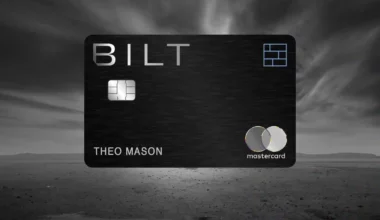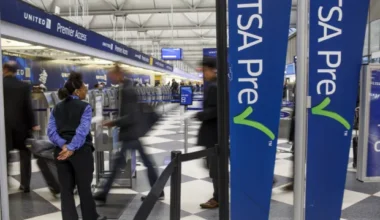Earlier today, New Jersey Governor Phil Murphy signed into law legislation designed to protect consumers from credit card surcharges. Though I sort of get the rationale here, I doubt any real positive effects will come out of this.
What the new law says
A4284/S3508 stipulates a cap on surcharges and that businesses clearly communicate any surcharges they charge customers.
With respect to the cap, the legislation limits surcharges to 2.5% of the total amount paid by the customer or the merchant’s actual costs when processing card payments–whichever is lower.
The bill also obligates businesses to communicate the applicable charges to their customers. For in-person transactions, both verbal communication and clear signage are necessary. Transactions made over the phone require verbal notification, and for online transactions, the charges should be clearly stated on the website.
Other states are doing similar things
New Jersey is not the first state to legislate on credit card surcharges. States like Connecticut, Massachusetts, and Puerto Rico have banned such surcharges outright, while Maine and New York have set guidelines for additional disclosure and caps, much like New Jersey. Other states, including California, have tried to prevent merchants from imposing surcharges but have faced legal challenges.
Consequences
It’s hard to know exactly what will come from this, but I see four plausible outcomes:
- Reduced Credit Card Acceptance: Some smaller merchants, especially those with thin margins, might only accept credit cards if they believe they can absorb or recuperate the associated fees.
- Price Adjustments: To compensate for the inability to pass on the total interchange cost to consumers, vendors may increase the baseline prices of their goods or services.
- Competitive Edge for Large Retailers: Bigger retailers with the capacity to absorb costs might have a competitive advantage over smaller ones if they continue to accept credit cards without passing on surcharges.
- Increased Use of Mobile Payment Apps: As a workaround, businesses might adopt or promote mobile payment apps offering reduced fees compared to credit card transactions.
I’m all for consumer protection, but a likely outcome from this legislation is increased prices, meaning consumers pay more across the board, even if they aren’t using a credit card. And since relatively wealthier consumers tend to use credit cards more frequently than poorer consumers, that means poorer cash buyers will subsidize richer credit card buyers. In addition, smaller businesses trying to navigate these restrictions might find themselves at an even greater competitive disadvantage against larger retailers, potentially leading to reduced choices and diversity in the market.
Conclusion
New Jersey’s surcharge cap reflects an increase in state-level consumer protection legislation aimed at protecting our wallets from unexpected fees. While that’s commendable, I see a few major downsides–though, as with many regulatory shifts, the real outcomes will be best understood over time.







2 comments
NJ should cap the fees charged to small businesses to 2.5% including any swipe fees or other junk fees they charge small businesses.
Currently, small businesses pay a higher commission for reward cards. All that cash back comes from the merchant
Merchants don’t pass along those costs evenly. Many use that as an excuse to add an inconsistent de facto credit card tax onto their customers. This law adds consistency and forces the business to be more transparent. Besides, all merchant funds come from the customer, so that cash back comes from the customers. Businesses that struggle with it in comparison to their competition are uncompetitive. Not all businesses deserve to continue.